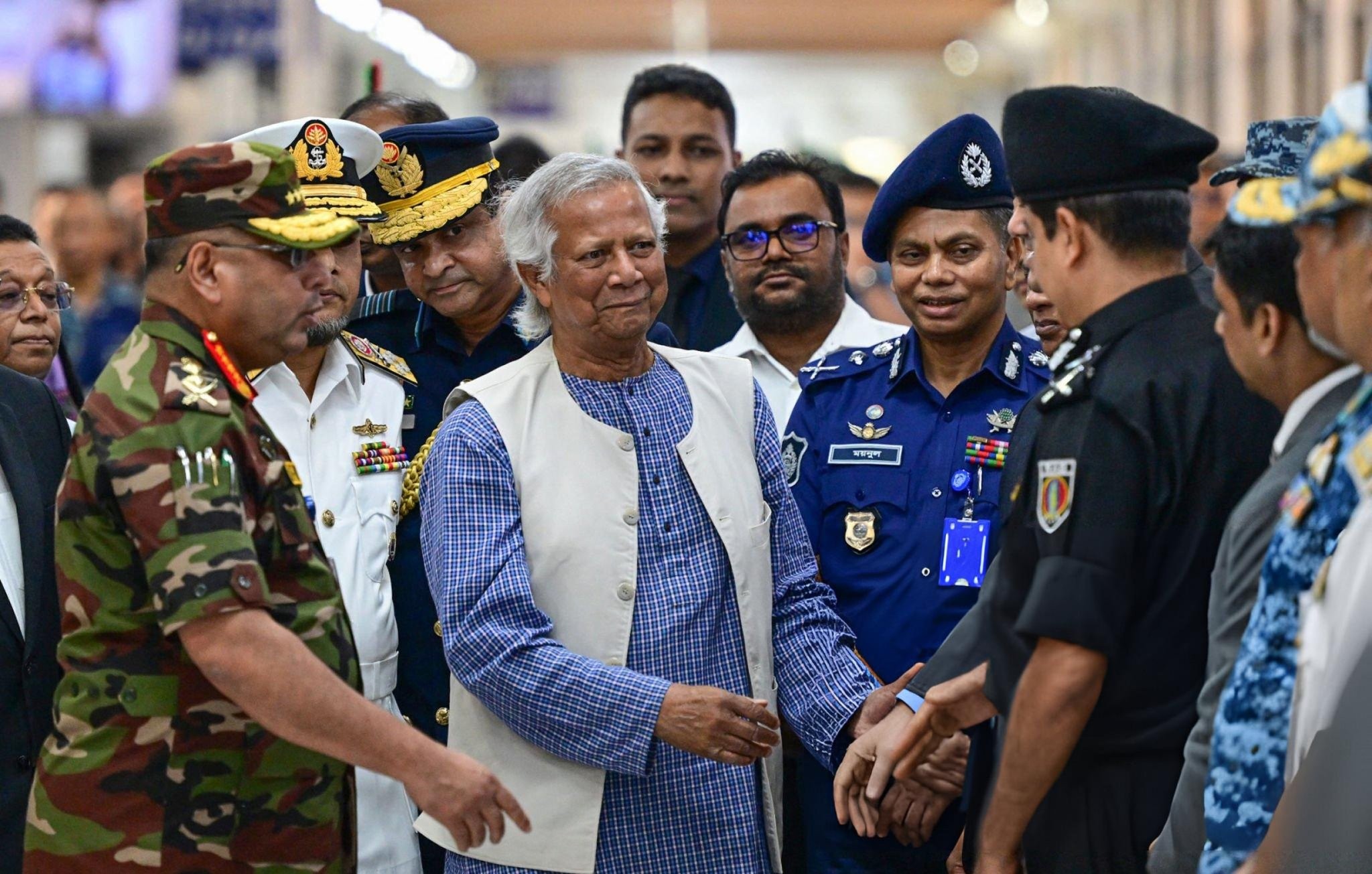
Nobel laureate Muhammad Yunus is set to lead Bangladesh’s interim government following the sudden departure of longtime Prime Minister Sheikh Hasina amid a severe uprising. The unrest, which resulted in hundreds of fatalities and pushed the nation to the edge of chaos, prompted Hasina to flee the country.
The announcement of Yunus’s appointment came early Wednesday from Joynal Abedin, press secretary to President Mohammed Shahabuddin. The decision was made during a high-level meeting that included military leaders, student protest organizers, prominent business figures, and members of civil society.
Yunus, a 67-year-old entrepreneur and Nobel Peace Prize winner, is renowned for his work in microcredit through Grameen Bank, which he founded in 1983. He is expected to return from Paris, where he is currently advising on Olympic matters, to take charge of the interim administration. His selection reflects a significant shift in Bangladesh’s political landscape, especially given his history as a staunch critic of Hasina.
The formation of the interim government comes after President Shahabuddin dissolved Parliament, paving the way for new elections. Additionally, opposition leader Khaleda Zia, who had been under house arrest, was released by the president.
The streets of Dhaka, the capital, saw relative calm on Tuesday following the violence that erupted after Hasina’s unexpected departure. The protests, which began in July over a controversial job quota system, escalated into a broader challenge to Hasina’s 15-year rule, marked by accusations of human rights abuses and electoral fraud.
Yunus’s rise to leadership is seen as a critical juncture for Bangladesh, which has experienced numerous coups and political crises since its independence in 1971. As Yunus prepares to head the interim government, concerns remain over the potential for further instability, especially given the recent violence that has claimed numerous lives and affected minority communities.
In the wake of Hasina’s resignation, there are also rising fears for the Hindu minority, which has historically faced violence during political upheavals. The EU and opposition leaders have called for restraint and protection of minority groups, while student leaders are mobilizing to safeguard places of worship.
Hasina, who had been in power for four consecutive terms, fled to India and is expected to travel to the UK. Her departure follows a contested election in January, which was widely criticized for its lack of credibility.









